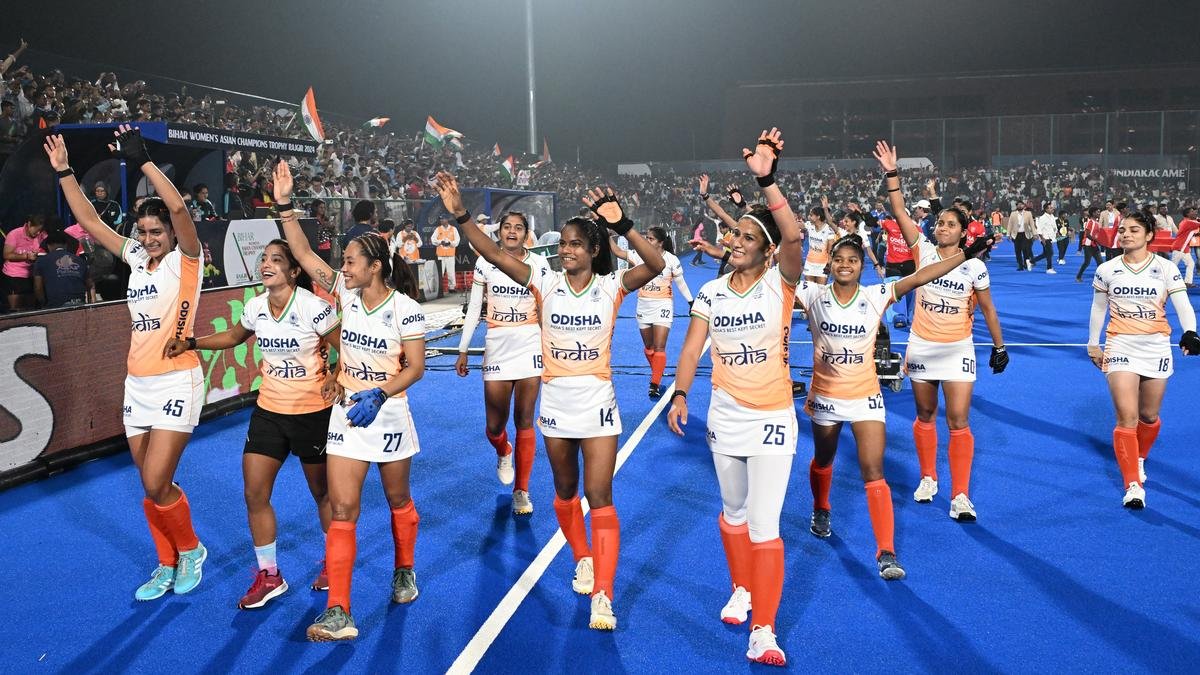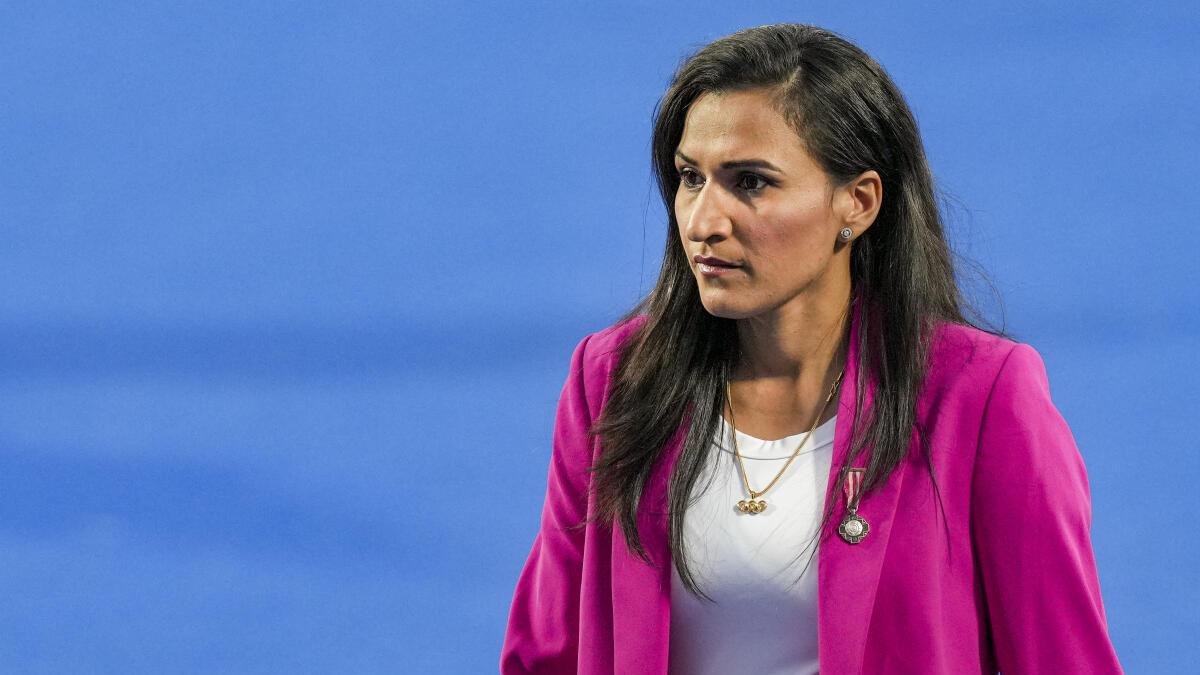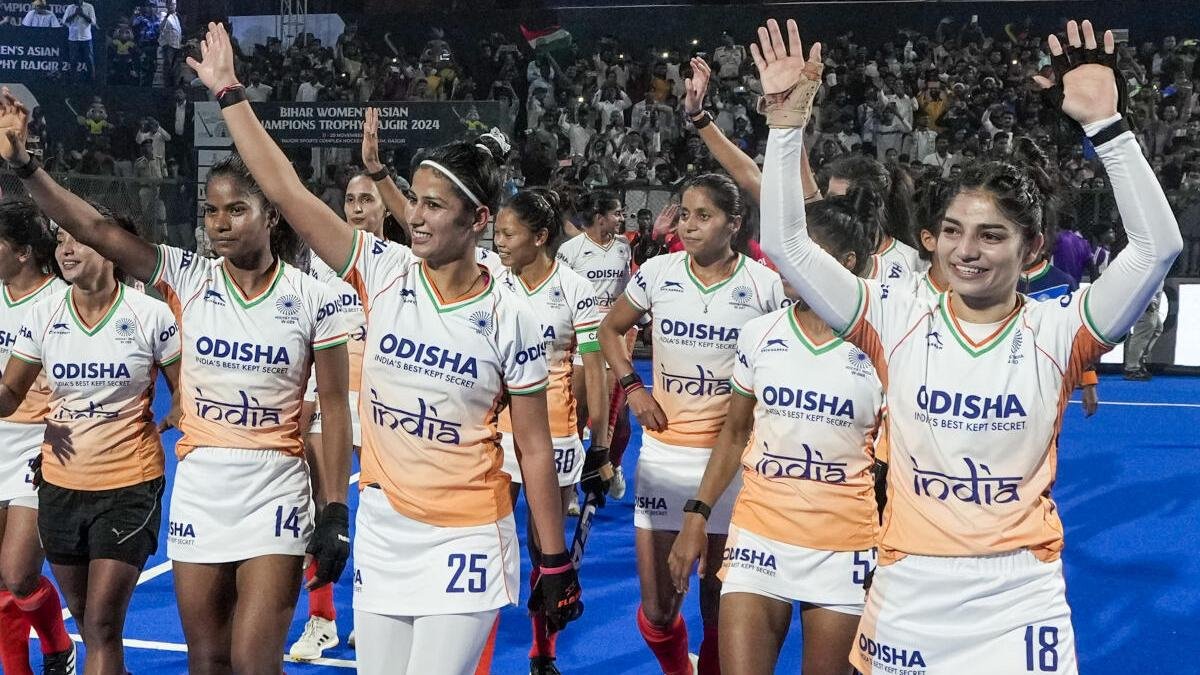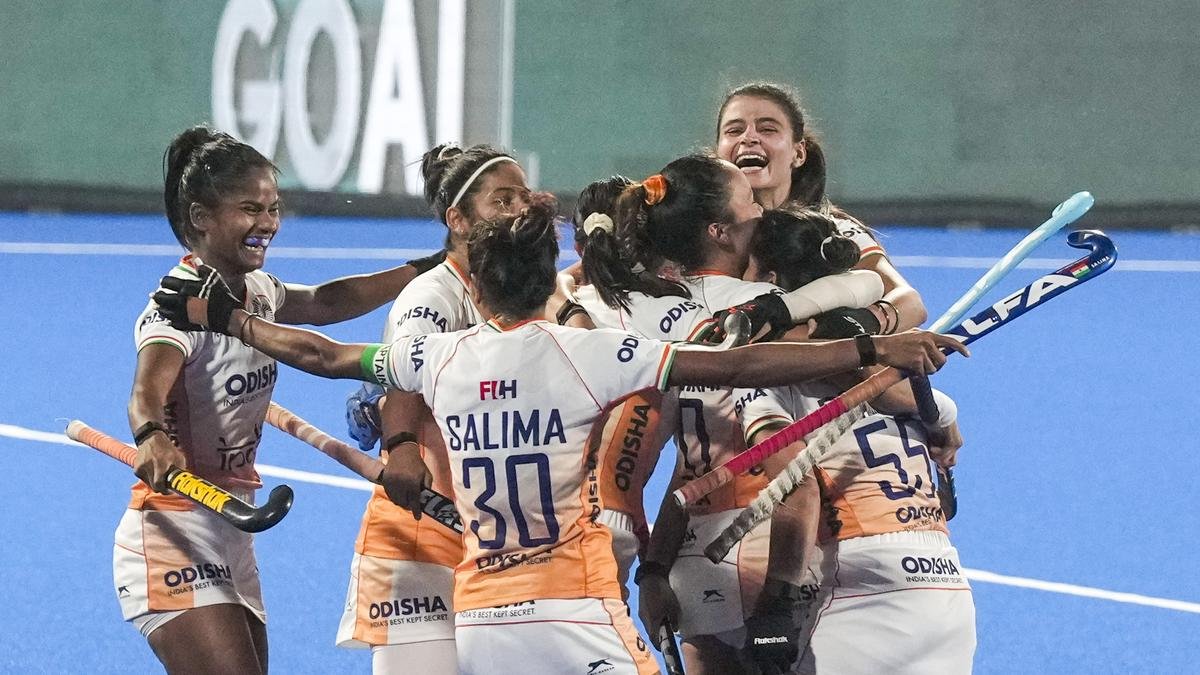Starting as the youngest member of the Indian team as a 14-year old at the Olympic Qualifiers in Kazan in April of 2008, Rani Rampal officially called it a day at a felicitation function here on Thursday, bringing down curtains on a 16-year-long career that saw her become the undisputed queen of Indian women’s hockey.
Among the most skilled players to ever wear the India jersey – the 28 number retired by Hockey India as a mark of respect on the occasion – Rani’s journey through the years and ranks culminated in leading the team to a historic fourth-place finish at the 2020 Tokyo Olympics and included breaking a 13-year drought to win the Asia Cup in 2017 and a silver at the 2018 Asian Games.
“Deciding to quit playing is a difficult decision for every sportsperson. After not doing anything else for 15-16 years deciding to stop is not easy but I thought this was the right time.”Rani Rampal to Sportstar
Her accolades include Arjuna Award (2016), World Games Athlete of the Year (2019), Rajiv Gandhi Khel Ratna and Padma Shri (2020).
Among the handful of Indian women players with more than 250 international caps and over 200 goals, Rani admitted it was not an easy decision but made easier by the realisation that there were no regrets looking back.
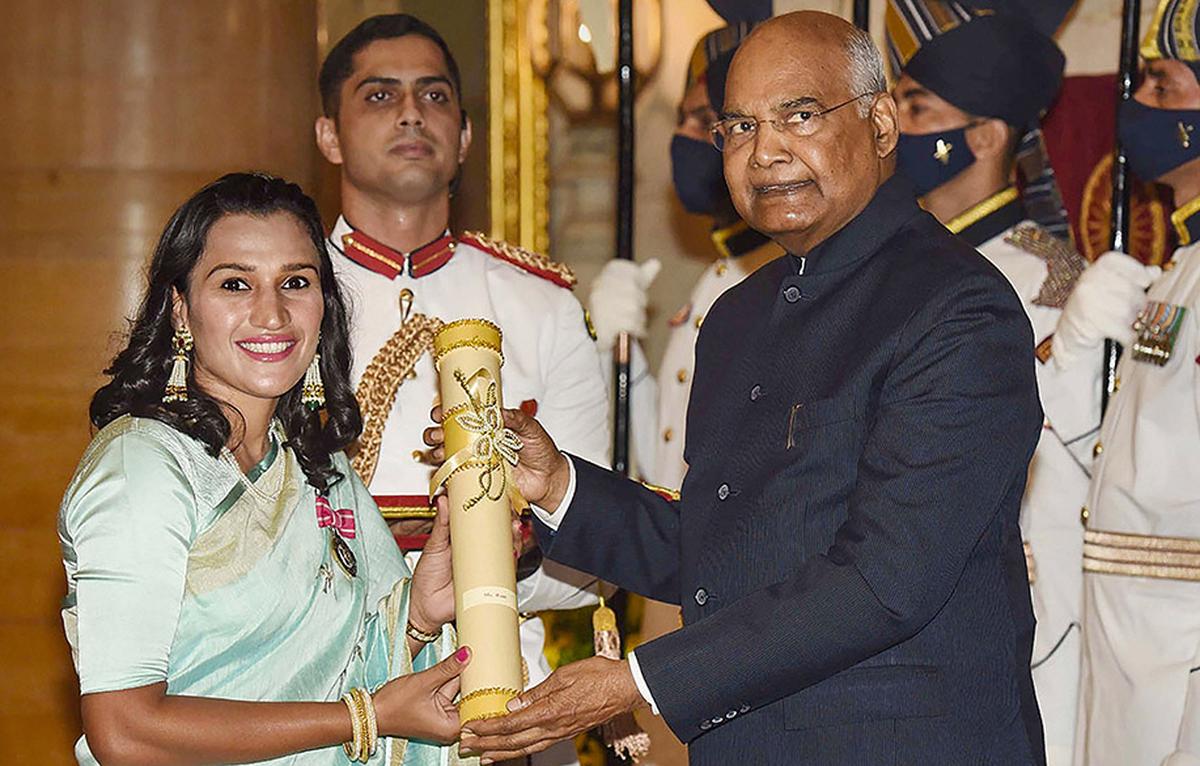
President Ram Nath Kovind presents the Padma Shri award to hockey player Rani Rampal at Rashtrapati Bhawan, in New Delhi.
| Photo Credit:
PTI
President Ram Nath Kovind presents the Padma Shri award to hockey player Rani Rampal at Rashtrapati Bhawan, in New Delhi.
| Photo Credit:
PTI
“Deciding to quit playing is a difficult decision for every sportsperson. After not doing anything else for 15-16 years deciding to stop is not easy but I thought this was the right time.
“There was a lot going through my mind when the whole idea of retiring was being considered — good, bad, doubts, right, wrong — but before I finally took the decision, the only thing I thought was, ‘do you have any regrets in life? Why are you thinking so much then?’
“If there was some regret or an unfulfilled wish where you didn’t try hard enough, then maybe. But there was none. Yes an Olympic medal would have been nice but it was not for lack of effort. So that made it easier,” she told Sportstar.
While her parents remain her pillar of strength, especially coming from the small village of Shahbad Markanda in Haryana, a state not known for encouraging women to even step out of home alone, Rani did not forget to credit coach Baldev Singh for her success.
Rani’s accolades include Arjuna Award (2016), World Games Athlete of the Year (2019), Rajiv Gandhi Khel Ratna and Padma Shri (2020).
| Photo Credit:
Ritu Raj Konwar/The Hindu
Rani’s accolades include Arjuna Award (2016), World Games Athlete of the Year (2019), Rajiv Gandhi Khel Ratna and Padma Shri (2020).
| Photo Credit:
Ritu Raj Konwar/The Hindu
Baldev, through his academy, while working with the Haryana sports department, has been the man behind not just making it the nursery of Indian women’s hockey over the years but a feeder line for the national team that continues to this day.
“There are different people who help you in different phases — starting with your parents because they are the ones who encourage and allow you to go out and play.
“Then coach Baldev Singh, who actually gave me an identity through hockey when I myself didn’t know anything about myself and polished my talent as a kid, something not many people can do. More importantly, he also taught me a lot of life lessons outside sports that have helped me through my life,” she said, nostalgic.
“Baldev sir was the one who told all of us, as kids, to never play for a coach but for the game. He used to say that there will be many coaches throughout your career but you should play to force every coach to play you in his team.
He taught us that people will know you for hockey, they won’t bother you once you stop playing. The game gives you the identity, not the coaches. So play for the game, not for any person,” she added.
The lessons, clearly, have stayed with her. From starting her international career with the late MK Kaushik through the likes of Harendra Singh, GS Bhangu, Sjoerd Marijne and Neil Hawgood, Rani has played under myriad coaches, all with different styles and philosophies but one constant – an appreciation for Rani and her skills.
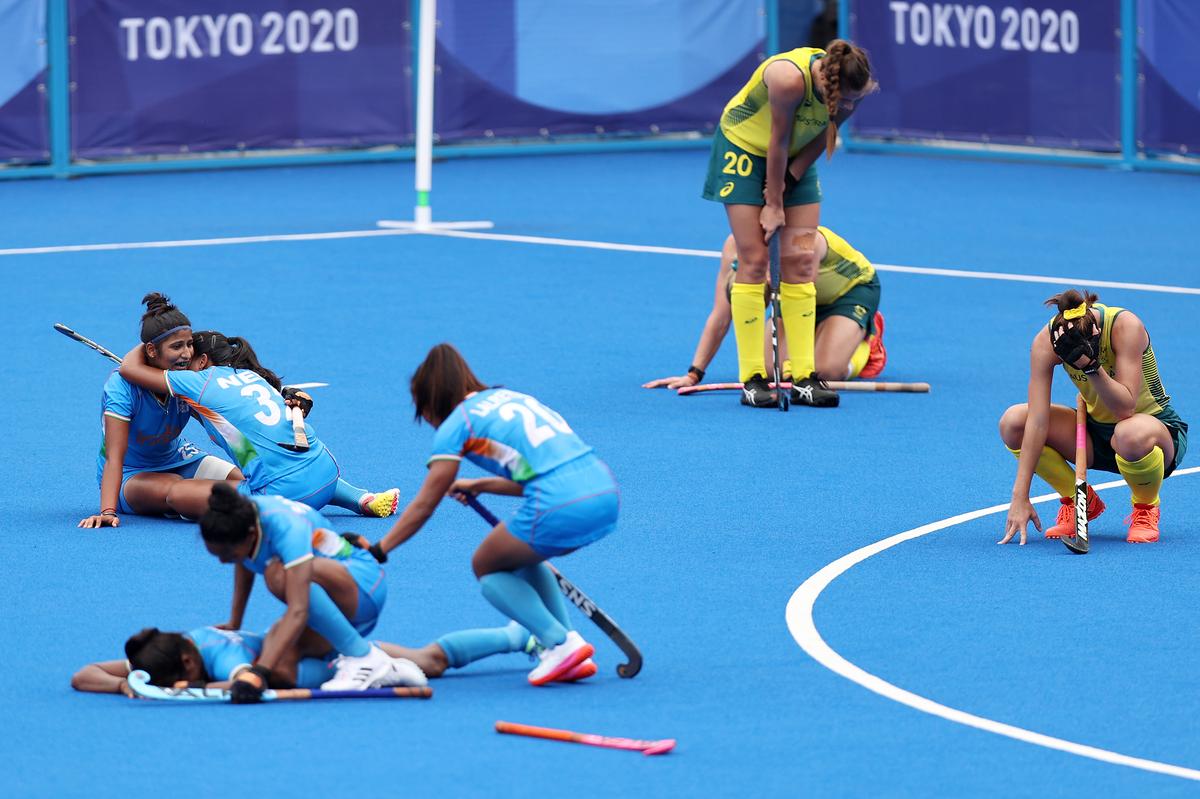
India, led by Rani Rampal, beat Australia to reach the semifinals of the Tokyo 2020 Olympics.
| Photo Credit:
Getty Images
India, led by Rani Rampal, beat Australia to reach the semifinals of the Tokyo 2020 Olympics.
| Photo Credit:
Getty Images
For her personally, the two moments that stand out are the time she earned her maiden India cap in 2008 and the Tokyo Olympics quarterfinals, when the Indian women stunned a rampaging and tournament favourite Australia.
From being racked with doubts of a still-born career after a serious back injury in 2007 to leading the side to an Olympic high, Rani is content walking into a new role – she has already done FIH coaching courses and will be mentoring a new generation of players at the upcoming Hockey India League – with her head high, knowing it was a job well done.


